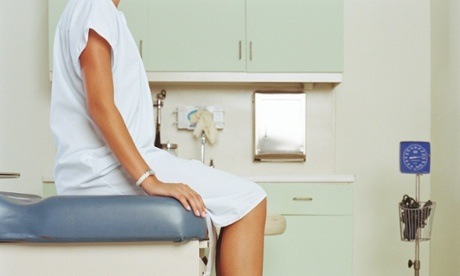
Private health insurance premiums could rise by up to 7% from April and the government is unlikely to veto the increase, as it negotiates with the medical profession about how to force patients to also pay more of the costs of Medicare.
Private insurers are in the final stages of negotiations with the health minister about the increases, which take effect from April and must be approved by the government. They are reportedly between 6% and 7%.
Asked about the reports on Thursday, the prime minister Tony Abbott said it was unlikely the government would interfere.
“I don’t recall in my time as health minister interfering in this process. Look, in the end, as I said, it is up to the market to set the price. The premiums that people pay is a matter between the fund members and the funds … we expect that funds will do their best by their members, but in the end, this is a commercial decision,” he said.
Dr Michael Armitage, the chief executive of Private Healthcare Australia, which represents private insurers, said he did not know what rises had been approved, but he was aware that the amount paid out by funds to patients last year rose by 9.1% according to the independent regulator.
“There has to be an increase in contributions to cover that increase,” Armitage said, adding that the private insurers were lobbying the government for legislative change that would allow them to extend their cover to primary healthcare.
Emerging from a first meeting with the new health minister, Sussan Ley, the Australian Medical Association president, Brian Owler, said the government was looking across the health system for savings that could potentially replace its planned $5 cut to Medicare rebates.
Owler said he had reiterated his organisation’s opposition to the two Medicare changes that remain government policy – a $5 cut to Medicare rebates to take effect from July, and extending the freeze on rebates for a further two years.
“The minister was open to looking at alternatives,” Owler said. “She’s open to looking at policies in general. The whole health system needs to be considered together … she’s looking at longer term strategies”.
Last week Ley scrapped a $20 cut to Medicare rebates for short GP visits that was announced last December and was about to take effect, after a fierce GP backlash.
The decision was made last year, reportedly at the behest of the prime minister and against the wishes of the treasurer and then health minister. It was ditched a few weeks later and has fuelled backbench concern about the government, and the prime minister’s performance in particular.
Announcing that backdown, Ley said the government remained determined to push ahead with other measures in the December package, including a $5 co-payment likely to apply to adult non-concession patients from July.
She and Abbott have said the government is committed to introducing a “price signal” for patients who can afford it, but a spokesman for Ley confirmed that the government was open to other options for how that price signal could be implemented.
In a statement before the AMA meeting, Ley said: “this is a genuine consultation effort and therefore decisions will not be made overnight or after one meeting.
“To have a predetermined outcome would be a sham consultation, which is why I look forward to continuing to listen to constructive ideas over the coming weeks.”
Ley has also said she wanted to tackle “six-minute medicine” – GP clinics built on a business model of rapid consultations.
